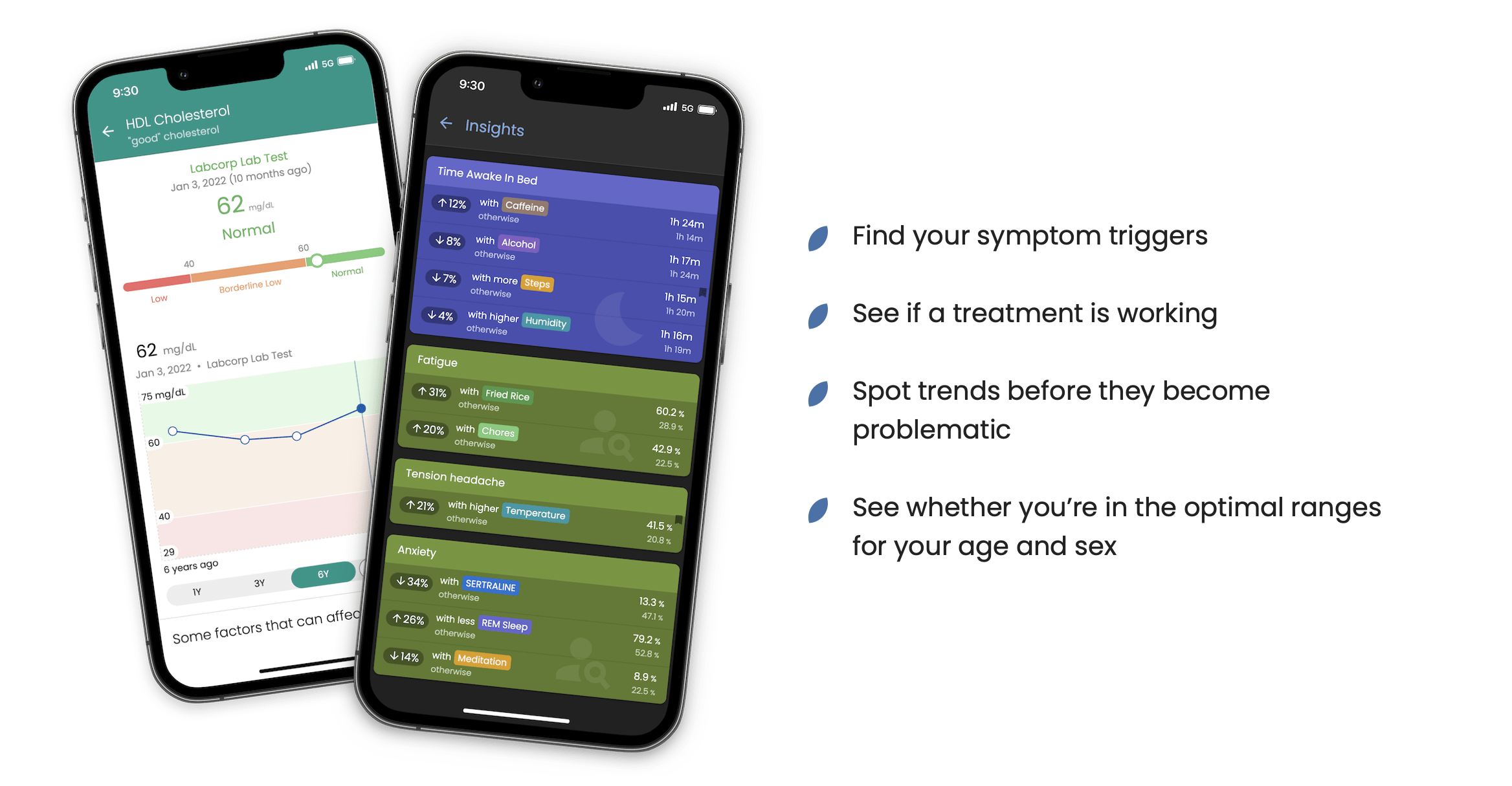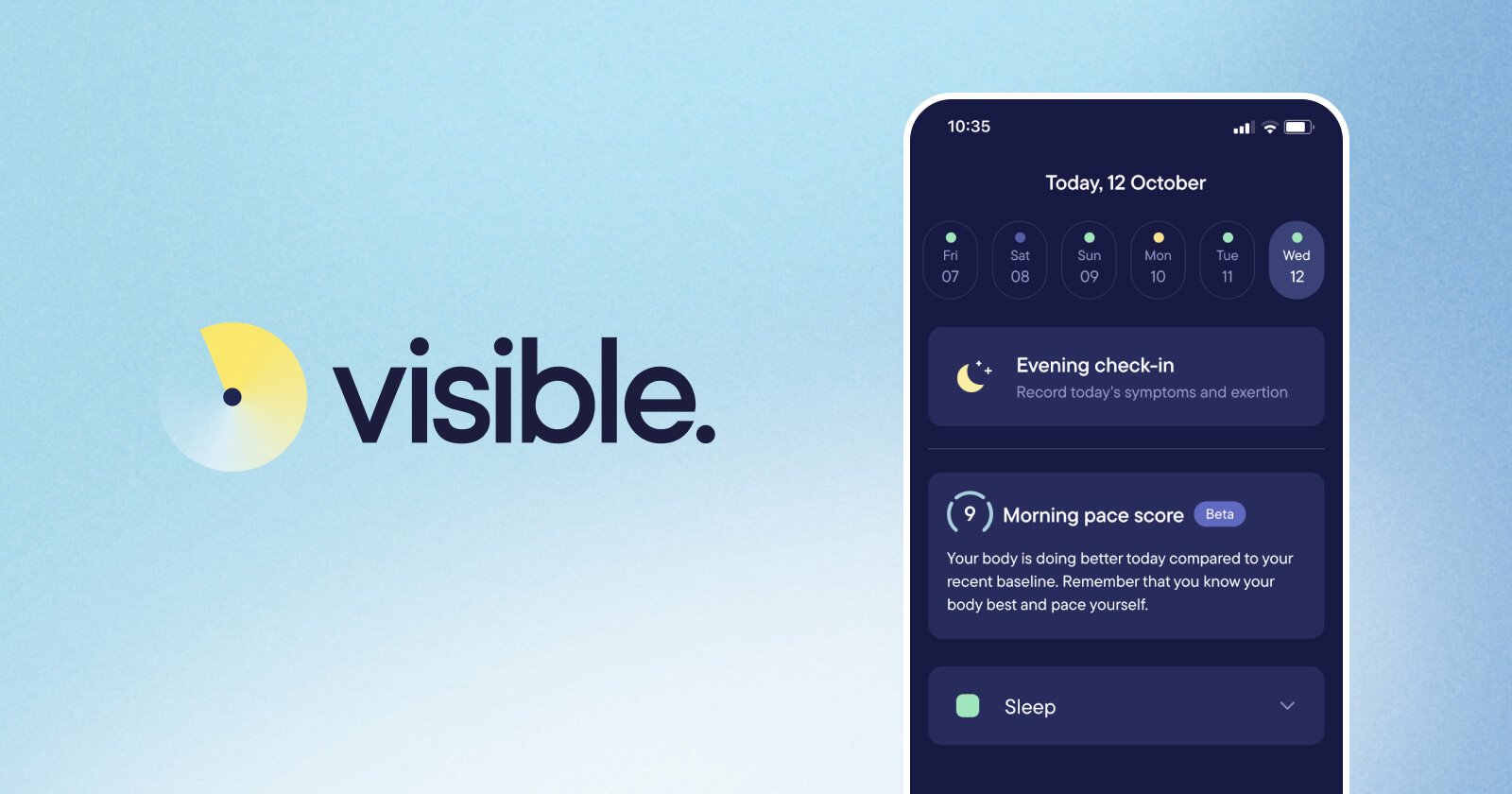Next-gen apps for chronic conditions
Beyond basic tracking: The innovation in chronic care
The health app landscape is evolving rapidly, with sophisticated platforms that go far beyond simple tracking and reminders. These next-generation tools don't just collect data - they provide actionable insights that adapt to each patient's unique needs.
For people managing conditions like diabetes, cancer, depression, or autoimmune disorders, these innovative systems are aiming to transform daily health management from a burden into a seamless experience.
With chronic disease costs expected to reach $47 trillion worldwide by 2030, finding new solutions to this healthcare challenge is urgent. AI-powered health apps offer a promising path forward by making disease management more accessible, personalized, and cost-effective.
These smart solutions are especially valuable for people managing complex or multiple conditions, where tracking symptoms and treatments can be overwhelming. AI algorithms can spot subtle patterns that we humans might miss, alerting users to potential flare-ups or complications before they become severe.
This proactive approach marks a significant advancement over traditional reactive care models.
Latest apps transforming chronic disease management
Here are some of the most innovative health apps designed specifically for chronic condition management.
Holly Health App: Smart Coaching for Chronic Care
Updated in 2024, Holly Health offers individualized coaching for people wanting to get a bit healthier and those managing multiple chronic conditions, using machine learning and adaptive behavior change techniques.
The app has been shown to reduce reliance on GP visits and improve self-management for people with complex health needs.
In one study, after 8 weeks of using Holly Health, users who reported a musculoskeletal (MSK) condition saw statistically significant improvements in self-reported exercise, energy levels, self-confidence, long-term mindset, and self-management skills.
Specifically, users who started with low to medium scores at baseline experienced significant improvements:
A 20% increase in exercise
15% more self-confidence
11% more energy
A 16% increase in long-term mindset (ability to focus on long-term benefits vs. short-term results)
17% increase in self-management skills (ability to manage own health and wellbeing)
Holly Health has partnered with over 100 UK GP practices, covering more than 500,000 patients, and has developed tailored programs for older adults through its Healthy Ageing Project in collaboration with Age UK.
Guava Health App: A Comprehensive Health Management Tool
Guava is a health tracking application designed primarily for individuals managing chronic or complex health conditions.
The app centralizes health information by connecting with over 50,000 US healthcare providers, allowing users to import medical records, lab results, and clinical notes into one location.
Guava offers several key functions, including symptom and habit tracking, medication management, and AI-powered analysis that identifies patterns between health data points.
The platform has gained popularity among people with conditions such as POTS, EDS, and Long COVID, who often coordinate care across multiple specialists. Users can generate health summaries from their tracked data to share during medical appointments, which helps facilitate more informed discussions with healthcare providers. Additional features include cycle tracking, pregnancy monitoring, and integration with fitness devices to create a comprehensive picture of the user's health status.
Visible Health App: A Supportive Companion for Energy Management
With the strapline “the activity tracking platform for illness, not fitness”, Visible offers a refreshing new approach to health tracking for people living with energy-limiting conditions like Long Covid, ME/CFS, POTS, fibromyalgia, and EDS.
Created with a deep understanding of these challenges, the app turns the traditional fitness tracker concept on its head by prioritizing rest and energy conservation rather than pushing for more activity.
At its heart, Visible helps users navigate their day with a thoughtful "pace points" system that visualizes energy spending, making the abstract concept of pacing more tangible. Each morning, the app checks in with users through simple heart measurements using just their phone's camera, establishing a daily stability score that serves as a friendly guide for the day ahead. Users can track their symptoms, medications, and activities over time, revealing helpful patterns that might otherwise go unnoticed.
The Visible team has also developed a cutting-edge AI algorithm that predicts a user’s susceptibility to “crashes” (periods of worsened symptoms or health setbacks) based on the world’s largest dataset of biometrics, symptoms, and crashes for complex illness.
Curable App: Smart Pain Management Solutions
Focused on chronic pain, Curable leverages AI to deliver a personalized approach to pain management.
The app features an AI-powered virtual coach named Clara that tailors a comprehensive program to each user's specific symptoms and preferences. According to one study, the app scored highest among 19 chronic pain apps for quality of self-management support.
*Study Design: Curable distributes a Patient Global Impression of Change survey to individuals after they have been using the program for 30 days. This study is ongoing, but to date the analysis includes n = 10,173 respondents.
What makes Curable particularly innovative is how its AI continuously adapts based on user feedback. The system learns which exercises (including meditation, brain training using CBT techniques, and expressive writing) resonate best with each individual and adjusts future recommendations accordingly. Rather than simply tracking symptoms, the AI interface transforms the user's relationship with pain through personalized education and self-guided exercises designed around their specific condition and response patterns.
Balancing innovation with reality
The rise of health apps for chronic disease management marks an exciting step forward. These intelligent tools are transforming how people handle complex health conditions, filling the crucial gap between infrequent doctor visits and day-to-day self-care.
But there are limitations.
While AI algorithms offer powerful capabilities, they work best as supplements to, not replacements for, professional medical guidance. Several key challenges persist: protecting patient privacy, ensuring equal access, and establishing robust clinical validation.
The health apps that will truly excel are those that seamlessly blend with existing healthcare systems while remaining accessible and user-friendly.
As this technology matures, we'll see increasingly sophisticated solutions that personalize chronic condition management, empowering millions of patients with better control over their health and deeper insights into their conditions.
📫 Subscribe to the Healthy Innovations newsletter for your weekly dose of medical advances, from AI diagnostics to gene therapies, delivered in a concise 5-minute read.




